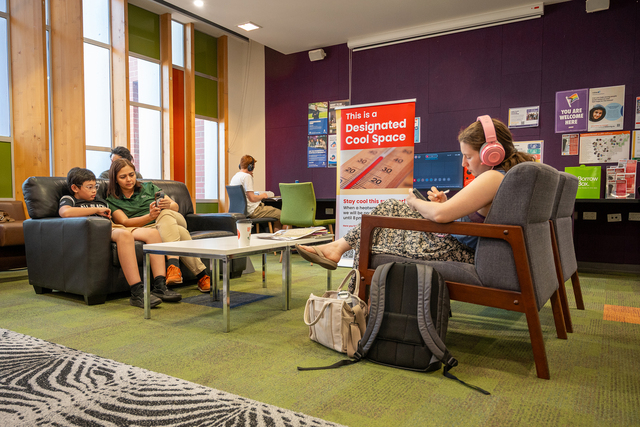The establishment of National Cabinet at the outset of COVID-19, and the subsequent cessation of the Coalition of Australian Governments (COAG) process, put a few noses out of joint. But don’t despair because the new intergovernmental architecture brings opportunities for local government.
The background is that National Cabinet agreed in June that a former senior official, Peter Conran AM, would review the former COAG councils and Ministerial forums to rationalise the structures and work programs.
Conran tabled a very readable, no-nonsense report last month. His basic proposition was that COAG was a slow, bottom-up framework that usually resulted in lowest common denominator outcomes. He contrasted COAG with National Cabinet, which deals with issues more quickly, listens more to the advice of experts, and dictates priorities and parameters for governments to implement, rather than getting caught up in the detail. See www.pmc.gov.au/domestic-policy/effective-commonwealth
-state-relations
Anyway, National Cabinet accepted all of Conran’s recommendations within a month! The bottom-line is to diminish the role of bureaucrats, reduce the number of ministerial forums, ensure the remainder are more agile and responsive, and give direct responsibility to Ministers. This is of course a radical reform to Commonwealth-State relations.
Collaboration
One of Conran’s interesting recommendations was to shift the focus from procedures to a collaborative work program, with agenda-setting mechanisms that help achieve outcomes and allow for more focused decision-making.
However the problem is that these ideals could ebb away over time. The solution might be for federal and state ministers to create a genuine collaborative culture that addresses the egos, risk adversity and petty games that prevail among advisers and bureaucrats. Indeed I’ve never seen federal bureaucrats so process-driven, which is why I really welcome Conran’s recipe for the future.
Lessons for local government
The Conran Report didn’t say much about local government. Councils shouldn’t take offence because he was intent on getting to the nitty-gritty.
But the truth is that local government is on the federal policy periphery because it has allowed itself to be.
Australian Local Government Association (ALGA) could play a much stronger role but is constantly undermined by the states’ insistence that local government is their responsibility. One school of thought is that we try to change the Constitution to give recognition to the critical role played by local government in contemporary Australia. You know, some nice words about place-based, bottom-up governance and leadership being the bedrock of a quality democratic system. Sorry, but you are dreamin’.
My alternative is that local government should embrace Conran’s call for collaboration, and show the feds and states how to do it. And focus on outcomes! The two go together. Achieving outcomes is easier if you collaborate.
Building certification as an example
The quality of building construction is deplorable in some cities. I’ve been tracking the issue for some years because in the 1990s I headed up the feds’ building and construction branch, and the Building Regulation Review Taskforce recommended the introduction of private certification within the building industry. The pitch was that councils were too slow and expensive, and that the mighty private sector should be allowed to compete and drive innovation. The usual arguments. Anyway, we recommended to our Minister that he sign a Memorandum or similar with the state and territories. This duly occurred, and we moved onto other things, as you do. But looking back, I don’t recall us ever discussing an ongoing monitoring system of private certification, and the ensuing lax oversight didn’t pick up the dodgy practices and outright rorting that followed.
So, jumping to the present, why couldn’t local government reposition itself more strongly in building certification? I have some clear ideas on how this could be achieved, and it involves a network of collaborative councils proposing a pilot program. The states may not be keen, but I think the feds and the insurance industry would sit up and take notice of a Conran-inspired collaborative approach. Recognition would follow. Please give me a ring.
In brief:
- Cartoon galleries – on behalf of the Coffs Harbour National Cartoon Gallery we’ve been liaising with councils across New South Wales/Victoria to identify potential mini-galleries that honour Local Legends. Been a wonderful process, and we’re still open to ideas.
- Recycled grey water – Canberra has a very low level of grey water treatment. We are thus in talks with the Australian Capital Territory Government and others about localised treatment plants to service golf courses, schools, public assets. Are there similar opportunities outside Canberra?
- Outdoor education – this industry has been hard-hit by COVID-19 and we are making a pitch to governments for some exciting new collaborative initiatives at the regional level. If this gels, please contact us.
- Federal Industry Minister, Karen Andrews – is really starting to shine. The contrast with her recent predecessors is remarkable.
- Development projects with Indonesia, India etc. – we are currently brain-storming a methodology to establish stronger economic linkages across borders. China’s antics have been the catalyst. Contact us for a confidential chat.
- Manufacturing Statement – it didn’t really say much about the role of a Buy Australia program. I’m currently mulling whether it’s worth some lobbying.
Rod Brown is a Canberra-based consultant and lobbyist specialising in industry/regional development, investment attraction and clusters, and accessing federal grants. He also runs the Cockatoo Network.
Phone: (02) 6231 7261 or 0412 922 559
Email: apdcockatoo@iprimus.com.au
















